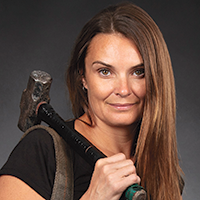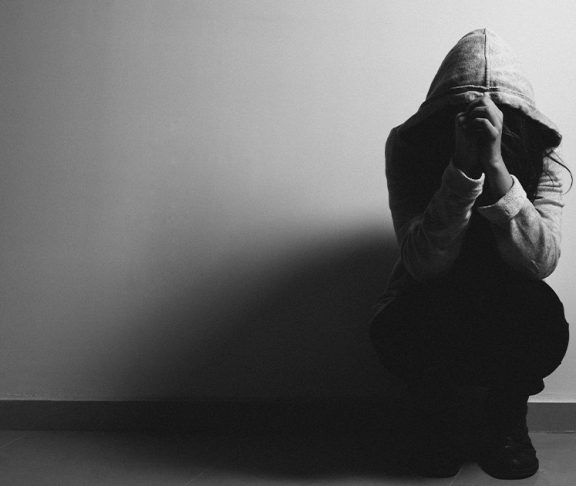
Jamie McMillan
Ironworker, Apprentice Boilermaker, & Founder of KickAss Careers
The COVID-19 pandemic has changed the world, opened my eyes, and adjusted my attitude. As a first-generation female ironworker of 18 years and skilled trades advocate, life as I knew it to a screeching halt on March 13, 2020. My speaking gigs were cancelled, the construction job I had lined up was put on hold, and I had to self-isolate for 14 days.
Once complete, I couldn’t sit still so I began seeking out opportunities to help with essential services in my community, landing a part-time job as a support worker at a women’s shelter.
Although I wasn’t an expert on homelessness, addiction, or mental health, I had the opportunity to develop a special rapport with many women accessing the program. I was very curious to learn women’s stories, and to my surprise it didn’t take long before I found a connection between homelessness and women in trades. Over the summer I met a number of women who had successful careers as skilled trade professionals, but unfortunate circumstances drastically changed their lives.
As I listen to each of their stories my heart broke.
One woman was a welder, had a beautiful home, and a BMW. Unfortunately, her employer never provided proper education or PPE. Her eyesight began to fail, and her respiratory health declined. Co-workers introduced her to crack cocaine as a coping mechanism. She became dependent on it to get through her workdays, but with her declining health she eventually had to leave her job. Her relationship ended when she could no longer provide financial support. Her partner took everything and threw her out. With nowhere to go she turned to the streets.
The second woman tore her rotator cuff in a workplace injury but couldn’t afford to take time off. She continued to work while medicating with the opioids prescribed by her doctor. Eventually the pain became unbearable and she could no longer do the physical aspect of the job. Her employer fired her, and she lost her benefits and could no longer afford medication. She was introduced to crystal meth, became an addict, and lost her daughter and home along with her dignity and self-worth.
The third woman was a millwright, company owner, and travelled often for work. As a young woman on the job site, she dealt with a considerable amount of harassment, bullying, and discrimination. Eventually it wore her down and her mental health started to decline causing massive stress on her personal relationship. Her partner became extremely abusive. She turned to drugs in an attempt to take her own life, but the outcome led to addiction rather than death. I’m proud to say she’s currently drug-free and working hard to get her mental health under control so she can re-enter the workforce.
With all the efforts to improve the reputation of the construction industry and promote careers in skilled trades as viable pathways, let’s not forget those we failed along the way. If we want to improve the reputation of our industry, we need to change the workplace culture. Nobody should feel the need to turn to substance abuse to deal with mental health issues or injuries sustained in the workplace. Let’s work together to make positive changes and show the world that skilled trades professionals are just that — professionals.
Wondering how you can help? Contact your local shelter ask how you can provide at least one hot meal to a person experiencing homelessness this holiday season.


